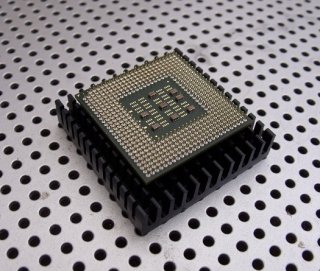Deprecated: Array and string offset access syntax with curly braces is deprecated in /hermes/bosnacweb09/bosnacweb09ao/b2085/d5.hiro/public_html/PHP/b2evolution/plugins/_auto_p.plugin.php on line 502
Deprecated: Array and string offset access syntax with curly braces is deprecated in /hermes/bosnacweb09/bosnacweb09ao/b2085/d5.hiro/public_html/PHP/b2evolution/plugins/_auto_p.plugin.php on line 500
Deprecated: Array and string offset access syntax with curly braces is deprecated in /hermes/bosnacweb09/bosnacweb09ao/b2085/d5.hiro/public_html/PHP/b2evolution/plugins/_texturize.plugin.php on line 116
Deprecated: Function create_function() is deprecated in /hermes/bosnacweb09/bosnacweb09ao/b2085/d5.hiro/public_html/PHP/b2evolution/inc/_core/_url.funcs.php on line 761
Warning: preg_match(): Compilation failed: invalid range in character class at offset 119 in /hermes/bosnacweb09/bosnacweb09ao/b2085/d5.hiro/public_html/PHP/b2evolution/inc/_ext/_url_rel2abs.php on line 300
Warning: preg_match(): Compilation failed: invalid range in character class at offset 119 in /hermes/bosnacweb09/bosnacweb09ao/b2085/d5.hiro/public_html/PHP/b2evolution/inc/_ext/_url_rel2abs.php on line 300
Warning: preg_match(): Compilation failed: invalid range in character class at offset 119 in /hermes/bosnacweb09/bosnacweb09ao/b2085/d5.hiro/public_html/PHP/b2evolution/inc/_ext/_url_rel2abs.php on line 300
Warning: preg_match(): Compilation failed: invalid range in character class at offset 119 in /hermes/bosnacweb09/bosnacweb09ao/b2085/d5.hiro/public_html/PHP/b2evolution/inc/_ext/_url_rel2abs.php on line 300
<div><div><a href="http://hirophysics.com/PHP/b2evolution/media/blogs/Hiro/quick-uploads/p84/a0001_014898.jpg?mtime=1481001678" rel="lightbox[p84]" id="link_96"><img alt="Fallacies of computer topics: A physicist's point of view II" src="http://hirophysics.com/PHP/b2evolution/media/blogs/Hiro/quick-uploads/p84/.evocache/a0001_014898.jpg/fit-320x320.jpg?mtime=1481001678" width="320" height="212" class="loadimg" /></a></div></div><p>Another misunderstanding is as for the programming language, Fortran. This is one of the very old languages developed for numerical calculation of physics and mathematics, but still exists.</p> <p>Fortran is a language specialized only for calculation, so it has been updated with such objective. In other words, Fortran becomes the most accurate and the quickest to calculate physics problems.</p> <p>However, C language (later extended to C++) emerged in the market and it has been more versatile, especially for software engineers. Then, the language spread out for almost all the programmers.</p> <p>After that, speaking of Fortran, people say, "You are still using such an old fossil-like language?", or "You can’t get any job if you use such a language."</p> <p>Indeed, most of those people have never used Fortran, and they do not even have programming experiences. (By the way, I have used two languages, C / C++ and Fortran, in the calculation of physics and mathematics for a long period.)</p> <p>Currently, Fortran is still being developed. Related engineers are upgrading it so that we can even use pointers and object oriented programming, which could only be used in C /C++ a long time ago. On the other hand, for C/C++, people created a lot of libraries and modules for numerical calculation. Now, the difference between Fortran and C has decreased.</p> <p>However, there are still some weak points for each of them. Fortran cannot be used as a general purpose. In other words, Fortran is still not optimized as a role of programming the software. (Maybe, it doesn’t have to be…)</p> <p>Then, C / C++ has a weakness in giving accurate numerical values. The default accuracy of Fortran is much better than C /C++.</p> <p>A couple of years ago (about year of 2014), I had to give numerical values using the formula of quartic equation, which is called Ferrari's formula. I initially used C, but the result was far from the exact solution. Then, I programmed the same algorithm with Fortran, and as a result, I was able to get the accurate values that were very close to the exact solutions.</p> <p>I believe that the computer and its languages will be developed further in the future. Thus, rather than learning only a popular language, people should master multiple languages and spend a time to accomplish something with those programming languages. That will be more important as a programmer or a simulator.</p><div class="item_footer"><p><small><a href="http://hirophysics.com/PHP/b2evolution/blog2.php/2016/12/06/fallacies-of-computer-topics-a-1">Original post</a> blogged on <a href="http://b2evolution.net/">b2evolution</a>.</small></p></div>
Warning: preg_match(): Compilation failed: invalid range in character class at offset 119 in /hermes/bosnacweb09/bosnacweb09ao/b2085/d5.hiro/public_html/PHP/b2evolution/inc/_ext/_url_rel2abs.php on line 300
Warning: preg_match(): Compilation failed: invalid range in character class at offset 119 in /hermes/bosnacweb09/bosnacweb09ao/b2085/d5.hiro/public_html/PHP/b2evolution/inc/_ext/_url_rel2abs.php on line 300
Warning: preg_match(): Compilation failed: invalid range in character class at offset 119 in /hermes/bosnacweb09/bosnacweb09ao/b2085/d5.hiro/public_html/PHP/b2evolution/inc/_ext/_url_rel2abs.php on line 300
Warning: preg_match(): Compilation failed: invalid range in character class at offset 119 in /hermes/bosnacweb09/bosnacweb09ao/b2085/d5.hiro/public_html/PHP/b2evolution/inc/_ext/_url_rel2abs.php on line 300
Warning: "continue" targeting switch is equivalent to "break". Did you mean to use "continue 2"? in /hermes/bosnacweb09/bosnacweb09ao/b2085/d5.hiro/public_html/PHP/b2evolution/inc/plugins/model/_plugins_admin.class.php on line 1454
Deprecated: Function create_function() is deprecated in /hermes/bosnacweb09/bosnacweb09ao/b2085/d5.hiro/public_html/PHP/b2evolution/inc/_core/_url.funcs.php on line 761
Another misunderstanding is as for the programming language, Fortran. This is one of the very old languages developed for numerical calculation of physics and mathematics, but still exists.
Fortran is a language specialized only for calculation, so it has been updated with such objective. In other words, Fortran becomes the most accurate and the quickest to calculate physics problems.
However, C language (later extended to C++) emerged in the market and it has been more versatile, especially for software engineers. Then, the language spread out for almost all the programmers.
After that, speaking of Fortran, people say, "You are still using such an old fossil-like language?", or "You can’t get any job if you use such a language."
Indeed, most of those people have never used Fortran, and they do not even have programming experiences. (By the way, I have used two languages, C / C++ and Fortran, in the calculation of physics and mathematics for a long period.)
Currently, Fortran is still being developed. Related engineers are upgrading it so that we can even use pointers and object oriented programming, which could only be used in C /C++ a long time ago. On the other hand, for C/C++, people created a lot of libraries and modules for numerical calculation. Now, the difference between Fortran and C has decreased.
However, there are still some weak points for each of them. Fortran cannot be used as a general purpose. In other words, Fortran is still not optimized as a role of programming the software. (Maybe, it doesn’t have to be…)
Then, C / C++ has a weakness in giving accurate numerical values. The default accuracy of Fortran is much better than C /C++.
A couple of years ago (about year of 2014), I had to give numerical values using the formula of quartic equation, which is called Ferrari's formula. I initially used C, but the result was far from the exact solution. Then, I programmed the same algorithm with Fortran, and as a result, I was able to get the accurate values that were very close to the exact solutions.
I believe that the computer and its languages will be developed further in the future. Thus, rather than learning only a popular language, people should master multiple languages and spend a time to accomplish something with those programming languages. That will be more important as a programmer or a simulator.
Deprecated: Function create_function() is deprecated in /hermes/bosnacweb09/bosnacweb09ao/b2085/d5.hiro/public_html/PHP/b2evolution/inc/_core/_url.funcs.php on line 761
Warning: preg_match(): Compilation failed: invalid range in character class at offset 119 in /hermes/bosnacweb09/bosnacweb09ao/b2085/d5.hiro/public_html/PHP/b2evolution/inc/_ext/_url_rel2abs.php on line 300
Warning: preg_match(): Compilation failed: invalid range in character class at offset 119 in /hermes/bosnacweb09/bosnacweb09ao/b2085/d5.hiro/public_html/PHP/b2evolution/inc/_ext/_url_rel2abs.php on line 300
Warning: preg_match(): Compilation failed: invalid range in character class at offset 119 in /hermes/bosnacweb09/bosnacweb09ao/b2085/d5.hiro/public_html/PHP/b2evolution/inc/_ext/_url_rel2abs.php on line 300
Warning: preg_match(): Compilation failed: invalid range in character class at offset 119 in /hermes/bosnacweb09/bosnacweb09ao/b2085/d5.hiro/public_html/PHP/b2evolution/inc/_ext/_url_rel2abs.php on line 300
]]>
Deprecated: Function create_function() is deprecated in /hermes/bosnacweb09/bosnacweb09ao/b2085/d5.hiro/public_html/PHP/b2evolution/inc/_core/_url.funcs.php on line 761
Warning: preg_match(): Compilation failed: invalid range in character class at offset 119 in /hermes/bosnacweb09/bosnacweb09ao/b2085/d5.hiro/public_html/PHP/b2evolution/inc/_ext/_url_rel2abs.php on line 300
Warning: preg_match(): Compilation failed: invalid range in character class at offset 119 in /hermes/bosnacweb09/bosnacweb09ao/b2085/d5.hiro/public_html/PHP/b2evolution/inc/_ext/_url_rel2abs.php on line 300
Warning: preg_match(): Compilation failed: invalid range in character class at offset 119 in /hermes/bosnacweb09/bosnacweb09ao/b2085/d5.hiro/public_html/PHP/b2evolution/inc/_ext/_url_rel2abs.php on line 300
Warning: preg_match(): Compilation failed: invalid range in character class at offset 119 in /hermes/bosnacweb09/bosnacweb09ao/b2085/d5.hiro/public_html/PHP/b2evolution/inc/_ext/_url_rel2abs.php on line 300
<div><div><a href="http://hirophysics.com/PHP/b2evolution/media/blogs/Hiro/quick-uploads/p83/computer_chip_201259.jpg?mtime=1480923478" rel="lightbox[p83]" id="link_95"><img alt="Fallacies of computer topics: A physicist's point of view I" src="http://hirophysics.com/PHP/b2evolution/media/blogs/Hiro/quick-uploads/p83/.evocache/computer_chip_201259.jpg/fit-320x320.jpg?mtime=1480923478" width="320" height="271" class="loadimg" /></a></div></div><p>As a physicist, I have had many opportunities to use computers. My job has involved managing hardware and software for physics experiments, programming for numerical calculation, and repairing of system problems. </p> <p>However, I am not a computer expert. I don’t have a degree of computer science. I don’t have experience in developing computer software either. So you can see I am a person between computer amateurs and the experts. In this article, I would like to point out fallacies related computer topics as a physicist.</p> <p>First of all, for people who do not know computers much, the concept of bits is not well understood. A common mistake is that "64 bits is twice the 32 bits."</p> <p>A bit is a unit for counting the number of digits in the binary number system. Therefore, one bit is one digit, which represents two ways such as 0 and 1. If you have 2 bits, it will be four ways with two digits and each with two ways.</p> <p>By considering this rule, we conclude 32 bits as 2 to the power of 32 ways. So 64 bits are as 2 to the power of 64. Therefore, 64 bits will be 4294967296 times larger than 32 bits. (You can simply calculate 2<sup>64</sup> divided by 2<sup>32</sup>.)</p> <p>Certainly, the number of digits is twice, but from the number of cases it can handle, this value is more meaningful to consider the power of computation.</p> <p>This is the same as physics. The units represent what the numbers are, and give you the meaning.</p> <p> </p> <p>Picture by by John Kovacich</p><div class="item_footer"><p><small><a href="http://hirophysics.com/PHP/b2evolution/blog2.php/2016/12/05/fallacies-of-computer-topics-a">Original post</a> blogged on <a href="http://b2evolution.net/">b2evolution</a>.</small></p></div>
Warning: preg_match(): Compilation failed: invalid range in character class at offset 119 in /hermes/bosnacweb09/bosnacweb09ao/b2085/d5.hiro/public_html/PHP/b2evolution/inc/_ext/_url_rel2abs.php on line 300
Warning: preg_match(): Compilation failed: invalid range in character class at offset 119 in /hermes/bosnacweb09/bosnacweb09ao/b2085/d5.hiro/public_html/PHP/b2evolution/inc/_ext/_url_rel2abs.php on line 300
Warning: preg_match(): Compilation failed: invalid range in character class at offset 119 in /hermes/bosnacweb09/bosnacweb09ao/b2085/d5.hiro/public_html/PHP/b2evolution/inc/_ext/_url_rel2abs.php on line 300
Warning: preg_match(): Compilation failed: invalid range in character class at offset 119 in /hermes/bosnacweb09/bosnacweb09ao/b2085/d5.hiro/public_html/PHP/b2evolution/inc/_ext/_url_rel2abs.php on line 300
Deprecated: Function create_function() is deprecated in /hermes/bosnacweb09/bosnacweb09ao/b2085/d5.hiro/public_html/PHP/b2evolution/inc/_core/_url.funcs.php on line 761
As a physicist, I have had many opportunities to use computers. My job has involved managing hardware and software for physics experiments, programming for numerical calculation, and repairing of system problems.
However, I am not a computer expert. I don’t have a degree of computer science. I don’t have experience in developing computer software either. So you can see I am a person between computer amateurs and the experts. In this article, I would like to point out fallacies related computer topics as a physicist.
First of all, for people who do not know computers much, the concept of bits is not well understood. A common mistake is that "64 bits is twice the 32 bits."
A bit is a unit for counting the number of digits in the binary number system. Therefore, one bit is one digit, which represents two ways such as 0 and 1. If you have 2 bits, it will be four ways with two digits and each with two ways.
By considering this rule, we conclude 32 bits as 2 to the power of 32 ways. So 64 bits are as 2 to the power of 64. Therefore, 64 bits will be 4294967296 times larger than 32 bits. (You can simply calculate 264 divided by 232.)
Certainly, the number of digits is twice, but from the number of cases it can handle, this value is more meaningful to consider the power of computation.
This is the same as physics. The units represent what the numbers are, and give you the meaning.
Picture by by John Kovacich
Deprecated: Function create_function() is deprecated in /hermes/bosnacweb09/bosnacweb09ao/b2085/d5.hiro/public_html/PHP/b2evolution/inc/_core/_url.funcs.php on line 761
Warning: preg_match(): Compilation failed: invalid range in character class at offset 119 in /hermes/bosnacweb09/bosnacweb09ao/b2085/d5.hiro/public_html/PHP/b2evolution/inc/_ext/_url_rel2abs.php on line 300
Warning: preg_match(): Compilation failed: invalid range in character class at offset 119 in /hermes/bosnacweb09/bosnacweb09ao/b2085/d5.hiro/public_html/PHP/b2evolution/inc/_ext/_url_rel2abs.php on line 300
Warning: preg_match(): Compilation failed: invalid range in character class at offset 119 in /hermes/bosnacweb09/bosnacweb09ao/b2085/d5.hiro/public_html/PHP/b2evolution/inc/_ext/_url_rel2abs.php on line 300
Warning: preg_match(): Compilation failed: invalid range in character class at offset 119 in /hermes/bosnacweb09/bosnacweb09ao/b2085/d5.hiro/public_html/PHP/b2evolution/inc/_ext/_url_rel2abs.php on line 300
]]>
Deprecated: Function create_function() is deprecated in /hermes/bosnacweb09/bosnacweb09ao/b2085/d5.hiro/public_html/PHP/b2evolution/inc/_core/_url.funcs.php on line 761
Warning: preg_match(): Compilation failed: invalid range in character class at offset 119 in /hermes/bosnacweb09/bosnacweb09ao/b2085/d5.hiro/public_html/PHP/b2evolution/inc/_ext/_url_rel2abs.php on line 300
Warning: preg_match(): Compilation failed: invalid range in character class at offset 119 in /hermes/bosnacweb09/bosnacweb09ao/b2085/d5.hiro/public_html/PHP/b2evolution/inc/_ext/_url_rel2abs.php on line 300
Warning: preg_match(): Compilation failed: invalid range in character class at offset 119 in /hermes/bosnacweb09/bosnacweb09ao/b2085/d5.hiro/public_html/PHP/b2evolution/inc/_ext/_url_rel2abs.php on line 300
Warning: preg_match(): Compilation failed: invalid range in character class at offset 119 in /hermes/bosnacweb09/bosnacweb09ao/b2085/d5.hiro/public_html/PHP/b2evolution/inc/_ext/_url_rel2abs.php on line 300
<div><div><a href="http://hirophysics.com/PHP/b2evolution/media/blogs/Hiro/quick-uploads/p82/lecture-student-university-education-classroom.jpg?mtime=1480304464" rel="lightbox[p82]" id="link_94"><img alt="What we see from students’ evaluating their professor's class" src="http://hirophysics.com/PHP/b2evolution/media/blogs/Hiro/quick-uploads/p82/.evocache/lecture-student-university-education-classroom.jpg/fit-320x320.jpg?mtime=1480304464" width="301" height="200" class="loadimg" /></a></div></div><p>In the United States, while a professor grades his/her students, the students evaluates their professor. It also helps the professor improve the class management for the future classes.<br /> <br /> I read the evaluation written by the student after the semester. In fact, studetns wrote very well to describe the professor’s teaching method and overall educational effects by taking the class.<br /> <br /> Apart from such evaluation, I personally interviewed many of students, and they told me quite interesting facts that they really think.<br /> <br /> Students generally want teachers who can break down the contents and make himself/herself understood for every student. However, students do not respect a teacher who makes class too easy. It depends on students, but I sense that most of the students want a good education rather than easy grades<br /> <br /> After I had interviews with many of the students, I noticed that the evaluation on the teaching method from the professors’ point of view is different from the that from the students’ point of view.<br /> <br /> As I mentioned earlier, students want teachers who can make difficult concepts easy and teach patiently when students have hard time to understand them.<br /> <br /> On the other hand, for the professor so-called hiring side, there is a tendency to choose a professor who can fluently and dignifiedly speak in front of people with some witty expressions.<br /> <br /> In other words, the professors already know what s/he talks, so they would like to choose people who can talk smoothly and bring out some difficult concepts of subjects.<br /> <br /> Anyway, when such a professor is selected to hire, it tends to be tough for students. Namely, such professor may express the attitude like "Why don’t you understand such easy stuff?" Then, the evaluation from the students becomes often low in many cases.<br /> <br /> I just remember that one student said to me, "When someone becames a teacher, s/he will forget what s/he was a student a long time ago." What a good expression it is!<br /> <br /> It is reasonable to say that there is such a conceptual gap between students and professors. If we do not cnsider this, it will be hard to bring about student-centered quality of education.</p><div class="item_footer"><p><small><a href="http://hirophysics.com/PHP/b2evolution/blog2.php/2016/11/27/what-we-see-from-students">Original post</a> blogged on <a href="http://b2evolution.net/">b2evolution</a>.</small></p></div>
Warning: preg_match(): Compilation failed: invalid range in character class at offset 119 in /hermes/bosnacweb09/bosnacweb09ao/b2085/d5.hiro/public_html/PHP/b2evolution/inc/_ext/_url_rel2abs.php on line 300
Warning: preg_match(): Compilation failed: invalid range in character class at offset 119 in /hermes/bosnacweb09/bosnacweb09ao/b2085/d5.hiro/public_html/PHP/b2evolution/inc/_ext/_url_rel2abs.php on line 300
Warning: preg_match(): Compilation failed: invalid range in character class at offset 119 in /hermes/bosnacweb09/bosnacweb09ao/b2085/d5.hiro/public_html/PHP/b2evolution/inc/_ext/_url_rel2abs.php on line 300
Warning: preg_match(): Compilation failed: invalid range in character class at offset 119 in /hermes/bosnacweb09/bosnacweb09ao/b2085/d5.hiro/public_html/PHP/b2evolution/inc/_ext/_url_rel2abs.php on line 300
Deprecated: Function create_function() is deprecated in /hermes/bosnacweb09/bosnacweb09ao/b2085/d5.hiro/public_html/PHP/b2evolution/inc/_core/_url.funcs.php on line 761
In the United States, while a professor grades his/her students, the students evaluates their professor. It also helps the professor improve the class management for the future classes.
I read the evaluation written by the student after the semester. In fact, studetns wrote very well to describe the professor’s teaching method and overall educational effects by taking the class.
Apart from such evaluation, I personally interviewed many of students, and they told me quite interesting facts that they really think.
Students generally want teachers who can break down the contents and make himself/herself understood for every student. However, students do not respect a teacher who makes class too easy. It depends on students, but I sense that most of the students want a good education rather than easy grades
After I had interviews with many of the students, I noticed that the evaluation on the teaching method from the professors’ point of view is different from the that from the students’ point of view.
As I mentioned earlier, students want teachers who can make difficult concepts easy and teach patiently when students have hard time to understand them.
On the other hand, for the professor so-called hiring side, there is a tendency to choose a professor who can fluently and dignifiedly speak in front of people with some witty expressions.
In other words, the professors already know what s/he talks, so they would like to choose people who can talk smoothly and bring out some difficult concepts of subjects.
Anyway, when such a professor is selected to hire, it tends to be tough for students. Namely, such professor may express the attitude like "Why don’t you understand such easy stuff?" Then, the evaluation from the students becomes often low in many cases.
I just remember that one student said to me, "When someone becames a teacher, s/he will forget what s/he was a student a long time ago." What a good expression it is!
It is reasonable to say that there is such a conceptual gap between students and professors. If we do not cnsider this, it will be hard to bring about student-centered quality of education.
Deprecated: Function create_function() is deprecated in /hermes/bosnacweb09/bosnacweb09ao/b2085/d5.hiro/public_html/PHP/b2evolution/inc/_core/_url.funcs.php on line 761
Warning: preg_match(): Compilation failed: invalid range in character class at offset 119 in /hermes/bosnacweb09/bosnacweb09ao/b2085/d5.hiro/public_html/PHP/b2evolution/inc/_ext/_url_rel2abs.php on line 300
Warning: preg_match(): Compilation failed: invalid range in character class at offset 119 in /hermes/bosnacweb09/bosnacweb09ao/b2085/d5.hiro/public_html/PHP/b2evolution/inc/_ext/_url_rel2abs.php on line 300
Warning: preg_match(): Compilation failed: invalid range in character class at offset 119 in /hermes/bosnacweb09/bosnacweb09ao/b2085/d5.hiro/public_html/PHP/b2evolution/inc/_ext/_url_rel2abs.php on line 300
Warning: preg_match(): Compilation failed: invalid range in character class at offset 119 in /hermes/bosnacweb09/bosnacweb09ao/b2085/d5.hiro/public_html/PHP/b2evolution/inc/_ext/_url_rel2abs.php on line 300
]]>
Deprecated: Function create_function() is deprecated in /hermes/bosnacweb09/bosnacweb09ao/b2085/d5.hiro/public_html/PHP/b2evolution/inc/_core/_url.funcs.php on line 761
Warning: preg_match(): Compilation failed: invalid range in character class at offset 119 in /hermes/bosnacweb09/bosnacweb09ao/b2085/d5.hiro/public_html/PHP/b2evolution/inc/_ext/_url_rel2abs.php on line 300
Warning: preg_match(): Compilation failed: invalid range in character class at offset 119 in /hermes/bosnacweb09/bosnacweb09ao/b2085/d5.hiro/public_html/PHP/b2evolution/inc/_ext/_url_rel2abs.php on line 300
Warning: preg_match(): Compilation failed: invalid range in character class at offset 119 in /hermes/bosnacweb09/bosnacweb09ao/b2085/d5.hiro/public_html/PHP/b2evolution/inc/_ext/_url_rel2abs.php on line 300
Warning: preg_match(): Compilation failed: invalid range in character class at offset 119 in /hermes/bosnacweb09/bosnacweb09ao/b2085/d5.hiro/public_html/PHP/b2evolution/inc/_ext/_url_rel2abs.php on line 300
Warning: preg_match(): Compilation failed: invalid range in character class at offset 119 in /hermes/bosnacweb09/bosnacweb09ao/b2085/d5.hiro/public_html/PHP/b2evolution/inc/_ext/_url_rel2abs.php on line 300
Warning: preg_match(): Compilation failed: invalid range in character class at offset 119 in /hermes/bosnacweb09/bosnacweb09ao/b2085/d5.hiro/public_html/PHP/b2evolution/inc/_ext/_url_rel2abs.php on line 300
Warning: preg_match(): Compilation failed: invalid range in character class at offset 119 in /hermes/bosnacweb09/bosnacweb09ao/b2085/d5.hiro/public_html/PHP/b2evolution/inc/_ext/_url_rel2abs.php on line 300
Warning: preg_match(): Compilation failed: invalid range in character class at offset 119 in /hermes/bosnacweb09/bosnacweb09ao/b2085/d5.hiro/public_html/PHP/b2evolution/inc/_ext/_url_rel2abs.php on line 300
Warning: preg_match(): Compilation failed: invalid range in character class at offset 119 in /hermes/bosnacweb09/bosnacweb09ao/b2085/d5.hiro/public_html/PHP/b2evolution/inc/_ext/_url_rel2abs.php on line 300
Warning: preg_match(): Compilation failed: invalid range in character class at offset 119 in /hermes/bosnacweb09/bosnacweb09ao/b2085/d5.hiro/public_html/PHP/b2evolution/inc/_ext/_url_rel2abs.php on line 300
<div><div><a href="http://hirophysics.com/PHP/b2evolution/media/blogs/Hiro/quick-uploads/p80/7874912840_e8ab61fdc3_z.jpg?mtime=1479807945" rel="lightbox[p80]" id="link_92"><img alt="Another explanation of what physics is with a little different perspective" src="http://hirophysics.com/PHP/b2evolution/media/blogs/Hiro/quick-uploads/p80/.evocache/7874912840_e8ab61fdc3_z.jpg/fit-320x320.jpg?mtime=1479807945" width="320" height="203" class="loadimg" /></a></div></div><p>Speaking of physics, people say, “It’s too hard to learn.”; “I don’t understand anything."; or "This is the theory that forms the basis of all technologies." They are right, but it does not seem that most people grasp what physics really is.</p> <p> A long time ago, my friend said to me, “Mathematics makes sense to me, but it doesn’t make sense when it comes to physics, though they look similar ..." I was interested to notice that what other people think about physics is different from what we, physicists, think.</p> <p> So I hope I can explain about physics with a slightly different perspective for this article.</p> <p> There is a difference between mathematics and physics. A mathematical theory is a world created by mathematicians with very precise logic. On the other hand, for physics, nature or universe is the world and physicists try to explain how it works.</p> <p> In other words, physicists construct a predictable theory using any means, such as experiments and mathematics, so we can understand how things move in nature. In that sense, it is impossible to completely prove the theory of physics, unlike mathematics.</p> <p> However, physics is certainly an extremely robust empirical theory because many researchers have challenged it with many aspects, and physics still survives.</p> <p> Most people who feel that physics is difficult don’t see the sense of "following nature's choice", I guess.</p> <p> Also, some of people who study literature said, “The curriculum of physics is the same for the freshman, the sophomore, the junior, and senior. Don’t the students learn any new things in each year?”</p> <p> This is the fact that the physics students have to learn the same subjects repeatedly even in the graduate school, such as, mechanics, electromagnetism, thermal and statistical mechanics, and quantum mechanics. But the contents for each year are obviously different.</p> <p> Basic principles and equations are of course the same, but as each grade progresses, we have to deal with more complicated problems. If it gets complicated, the students have to learn more advanced mathematics and the abstract concepts. Therefore, it is hard for students to master the specific subject in one or two years.</p> <p> Although it is true for other natural sciences and mathematics, physics requires accurate processes as important as the accurate final result. This is because if the conditions change, it will give us a completely different answer. But there is also other reason.</p> <p> The process or the way of solving is also an invention of a very important tool for physics.</p> <p> Some people say, "If you get the same answer anyway, you can use any method you like." However, by using a different method, we can check various things. In addition, we might solve other problem settings we could not even attempt before.</p> <p> Hope you would appreciate the role of physics, natural sciences and mathematics, which each discovery or invention is very important and influential to the entire theory.</p> <p> </p> <p>Photo credit: <a href="https://www.flickr.com/photos/stuckincustoms/7874912840/">Stuck in Customs</a> via <a href="https://visualhunt.com/photos/travel/">Visual Hunt</a> / <a href="http://creativecommons.org/licenses/by-nc-sa/2.0/">CC BY-NC-SA</a></p><div class="item_footer"><p><small><a href="http://hirophysics.com/PHP/b2evolution/blog2.php/2016/11/22/another-explanation-of-what-physics">Original post</a> blogged on <a href="http://b2evolution.net/">b2evolution</a>.</small></p></div>
Warning: preg_match(): Compilation failed: invalid range in character class at offset 119 in /hermes/bosnacweb09/bosnacweb09ao/b2085/d5.hiro/public_html/PHP/b2evolution/inc/_ext/_url_rel2abs.php on line 300
Warning: preg_match(): Compilation failed: invalid range in character class at offset 119 in /hermes/bosnacweb09/bosnacweb09ao/b2085/d5.hiro/public_html/PHP/b2evolution/inc/_ext/_url_rel2abs.php on line 300
Warning: preg_match(): Compilation failed: invalid range in character class at offset 119 in /hermes/bosnacweb09/bosnacweb09ao/b2085/d5.hiro/public_html/PHP/b2evolution/inc/_ext/_url_rel2abs.php on line 300
Warning: preg_match(): Compilation failed: invalid range in character class at offset 119 in /hermes/bosnacweb09/bosnacweb09ao/b2085/d5.hiro/public_html/PHP/b2evolution/inc/_ext/_url_rel2abs.php on line 300
Fatal error: Uncaught Error: Call to undefined function ctype_space() in /hermes/bosnacweb09/bosnacweb09ao/b2085/d5.hiro/public_html/PHP/b2evolution/inc/_core/_misc.funcs.php:1202 Stack trace: #0 /hermes/bosnacweb09/bosnacweb09ao/b2085/d5.hiro/public_html/PHP/b2evolution/plugins/_autolinks.plugin.php(561): make_clickable('<p>Speaking of ...', '&', 'make_clickable_...', '', true) #1 /hermes/bosnacweb09/bosnacweb09ao/b2085/d5.hiro/public_html/PHP/b2evolution/plugins/_autolinks.plugin.php(473): autolinks_plugin->render_content('<p>Speaking of ...', Object(Blog)) #2 /hermes/bosnacweb09/bosnacweb09ao/b2085/d5.hiro/public_html/PHP/b2evolution/inc/plugins/model/_plugins.class.php(1209): autolinks_plugin->RenderItemAsHtml(Array) #3 /hermes/bosnacweb09/bosnacweb09ao/b2085/d5.hiro/public_html/PHP/b2evolution/inc/plugins/model/_plugins.class.php(1341): Plugins->call_method('3', 'RenderItemAsHtm...', Array) #4 /hermes/bosnacweb09/bosnacweb09ao/b2085/d5.hiro/public_html/PHP/b2evolution/inc/items/model/_item.class.php(1625): Plugin in /hermes/bosnacweb09/bosnacweb09ao/b2085/d5.hiro/public_html/PHP/b2evolution/inc/_core/_misc.funcs.php on line 1202



